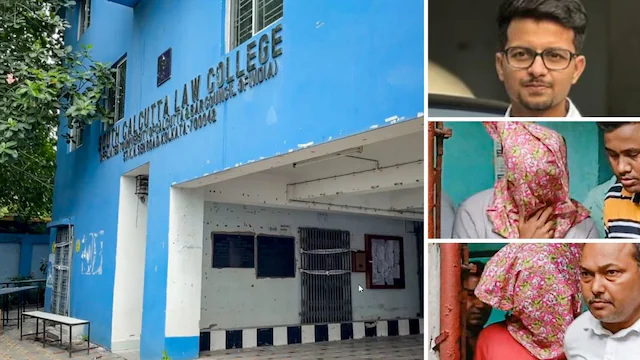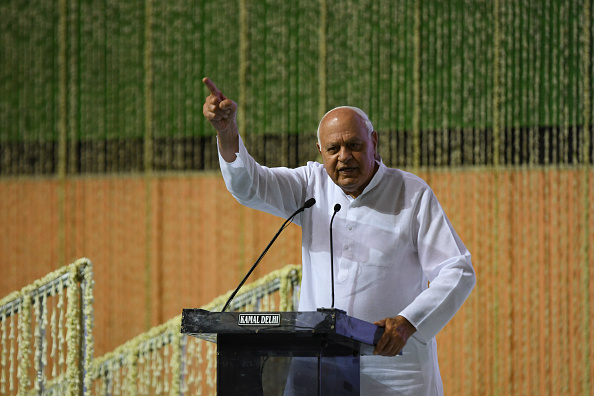Student Lured with Union Post, Assaulted by Ex-TMC Members in Campus Crime Shocker
In a chilling reminder that even educational sanctuaries can turn unsafe, a 24-year-old first-year student of South Calcutta Law College was allegedly gang-raped on the night of 25 June 2025 inside the college’s guard room at its Kasba campus. According to her statement, the assailants—ex-students with reported links to the Trinamool Congress (TMC) student wing—lured her with promises of a union post, spiked her drink, and filmed the crime. The brutality has shocked Kolkata, prompting arrests, political sparring, and urgent calls for stronger campus security. This article unpacks the crime, the investigation, and the broader ramifications for student safety in West Bengal.
#BengalGangRape | Educational institutions should be safe. But this has been the pattern in Bengal where TMC students' wing hold authority to manipulate things: Nirmal Kaur, Ex IPS
— News18 (@CNNnews18) June 27, 2025
Tauseef Ur Rehman, TMC says action has been taken as all 3 accused are in custody and probe is on… pic.twitter.com/QPcJC14y7C
How the Crime Unfolded Inside the Guard Room Steps Away from Classrooms
The survivor told police she was invited to a “strategy meeting” about an upcoming students’ union election. The meeting venue was the guards’ rest room, an area she trusted because it sits barely 20 metres from the main academic block. Once inside, Monojit Mishra (former TMC Chhatra Parishad unit president) and Pramit Mukherjee allegedly handed her a soft drink laced with sedatives. Moments later, she felt dizzy and was pinned down while Zaib Ahmed, a campus peon, locked the door.
📢 Monojit Mishra arrested in Kolkata Law College Gang R*pe case.
— The Analyzer (News Updates🗞️) (@Indian_Analyzer) June 27, 2025
~ A female student was brutally Gang-R*ped, right outside the union room of Trinamool Chhatra Parishad (TMCP).
One the land of revolutionaries, West Bengal is turning out to be a NIGHTMARE for women. Shame pic.twitter.com/y3n7L0aPuc
For over an hour, the trio allegedly took turns assaulting her and recorded the act on a mobile phone—threatening to leak the video if she spoke up. “I folded my hands, I touched their feet, but they refused to let me go,” she recounted in her magistrate statement. The men even taunted her, saying top party leaders would protect them.
Summoning her last reserve of strength, the victim escaped when her assailants stepped out to answer a knock. She ran straight to the Kasba police station, filing an FIR under IPC sections 376-D (gang-rape), 328 (administering stupefying drug), 506 (criminal intimidation), and IT Act section 67 (obscene video).
TMC Ties Spark Political Firestorm as Arrests Mount in Law College Rape Case
Within 48 hours, Kolkata Police’s Women Grievance Cell arrested Mishra, Mukherjee, and Ahmed. On 28 June, a fourth suspect—Rajesh Saha, a campus security guard—was nabbed for allegedly ignoring the victim’s cries and facilitating the crime. All were produced before an Alipore court and remanded to police custody till 1 July.
What turned a criminal case into political fodder were the suspects’ alleged ties to the ruling Trinamool Congress’s student wing. Monojit Mishra, in particular, was formerly associated with the TMC Chhatra Parishad. As public outrage mounted, opposition leaders from the BJP and Congress demanded Chief Minister Mamata Banerjee personally intervene, accusing her government of presiding over a culture of lawlessness.
The BJP, led by senior leaders like Suvendu Adhikari, launched scathing attacks not just on Mamata but also on senior TMC MP Kalyan Banerjee, who recently courted controversy over sexist remarks in Parliament. BJP leaders have called out what they term the “hypocritical silence” of TMC on women’s rights—using the law college incident as a prime example of the party’s double standards. “When Kalyan Banerjee mocks women in Parliament, and party workers assault them in classrooms—what moral ground does TMC have left?” questioned a BJP spokesperson.
SHAME!
— Amit Malviya (@amitmalviya) June 27, 2025
In the horrific gang rape case of a college student in Kasba, involving a TMCP leader and his associates, TMC MP Kalyan Banerjee has crossed all limits of shamelessness.
When asked about women’s safety, he dismissed it as a mere “political agenda.”
On the RG Kar rape… pic.twitter.com/QWw3lKlN7q
TMC, on the other hand, sought to distance itself from the accused, stating that “law will take its course.” Yet the damage was done—student unions, opposition leaders, and civil society groups converged in rare unity to demand justice.
The National Commission for Women (NCW) took suo-motu cognizance of the crime, giving Kolkata Police seven days to submit a full report. Candle-light marches erupted across Kolkata and other university towns, with slogans like “No Means No” and “Safe Campus Now” echoing through the streets.
From Trauma to Trial: Campus Security Overhaul and the Search for Justice
In response to the uproar, the college suspended the accused students, disbanded the existing students’ union, and formed an internal sexual-harassment redressal committee. Authorities installed additional CCTV cameras, mandated biometric entry for visitors, and introduced a 24/7 women-safety helpline.
Legal experts say the police have a strong case: medical reports corroborate sexual assault, CCTV footage captures the victim entering the guard room, and seized phones contain incriminating clips. Investigators aim to file a chargesheet within 15 days to fast-track the trial under India’s amended anti-rape laws.
Yet activists caution that structural change is vital. They urge universities to conduct background checks on student leaders, provide self-defence workshops, and create safe-reporting mechanisms. As the case heads to court, the victim’s testimony—and society’s response—will test West Bengal’s commitment to women’s safety on campus.





















